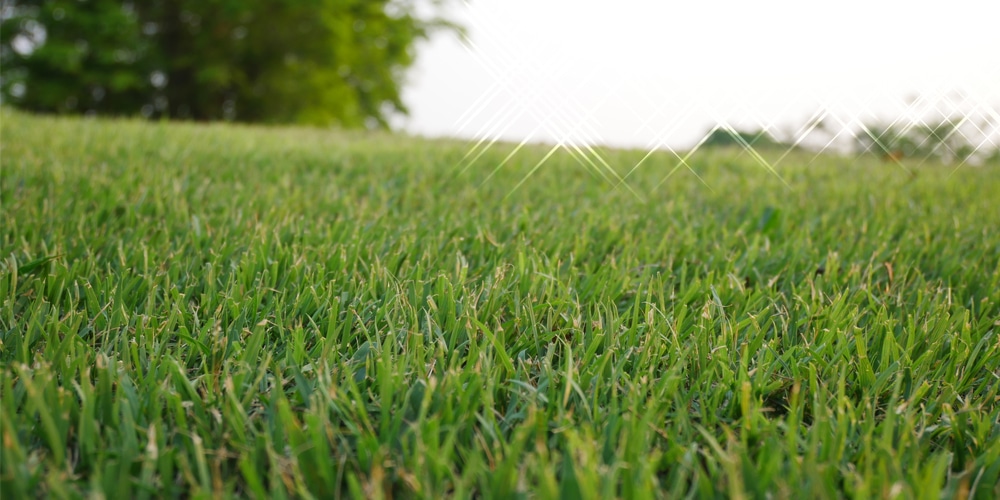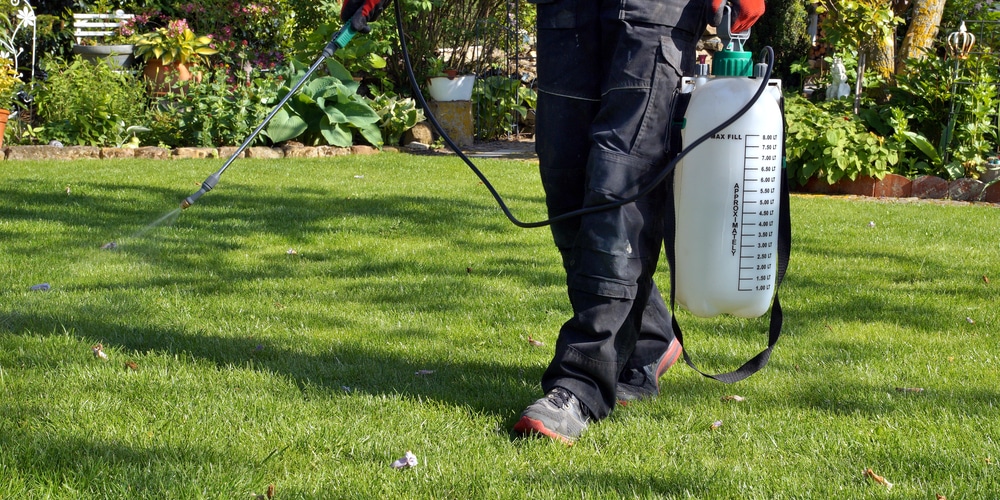Bermuda grass is a desirable turf for your lawn most of the time. It looks great, does fairly well even during hot summers and self-repairs, to boot.
But what should you do if you do not want bermuda in your garden? Will Atrazine kill Bermuda Grass?
The fact is, atrazine is one of the best weed killers you can use if you don’t want bermuda on your Centipede or St. Augustine turf. It’s an excellent pre- and post-emergent killer when applied at the right time.
Atrazine Versus Bermuda Grass: will atrazine kill bermuda grass?

Bermuda grass can either be your best friend or your worst enemy, depending on the situation you’re in.
On its own, Bermuda makes a superb green lawn that’s easy to care for. It tolerates a wide variety of soil conditions and can tolerate a bit of neglect. It’s also a warm season grass variety, which means you don’t have to worry about your turf turning brown in the summer.
On the other hand, if you already have a St. Augustine or Centipede lawn and see Bermuda as an invasive species, then you have reason to eliminate them before they could proliferate. In these cases, Atrazine is the best solution.
The trick to stopping Bermuda grass effectively is in the timing. Atrazine, when applied to dormant Bermuda does nothing and you’ll have wasted your money. However, when temperatures are rising and you see them coming out of the ground then it’s best to reach for a spray and do a wide application.
Is Atrazine a Bermuda Grass Killer?
Atrazine is a popular ‘weed killer’ or herbicide that’s widely available in garden shops and hardware stores. You can easily procure one if you have a bermuda infestation in your yard or garden.
Atrazine has a special characteristic in that it can kill virtually any grass type except for Centipedegrass and St. Augustine grass. Most people who own these two types of grass will be more likely to go with atrazine than other herbicides in the market.
Another thing to note is that Atrazine is slow-acting, which means it needs time to properly break down the grass system. After applying the herbicide, you should wait around 4 to 6 weeks to completely see the results.
Do an up-close inspection of the bermuda grass to see if the weed killer is working. When you see the blades of grass turning yellow, and there’s no new growth or sprouts and zero runners, it’s a sign that Atrazine is working. Just wait another week or so and the bermuda will have been completely eliminated.
Atrazine has other garden benefits, such as reduced soil erosion, boosted production and a neutral effect on the ground. Soil quality is left as is, and it deactivates unwanted grasses without harming anything else.
All herbicides can be harmful if improperly used. It’s recommended that you read the label before mixing Atrazine or it could kill more than just the bermuda grass in your lawn.
How Do You Use Atrazine in Bermuda?
Atrazine works well as a pre- and post-emergent herbicide. This means you can put it on your lawn if you want to prevent the growth of Bermuda, and if you have an existing problem that you want to get rid of.
Application of the weed killer will depend on your situation. Generally, you can spray it on your turf to get rid of existing bermuda grass and stop them from becoming invasive in your Centipede grass or St. Augustine lawn.
Alternatively, you can eliminate weeds in your Bermuda grass lawn if you wait for them to go dormant. If they’re brown and dry but still hold firmly to the ground, you can put some Atrazine and this won’t affect your grass in any way.
The best way to kill bermuda is to apply Atrazine in spring. It’s when the grass is turning green and slowly emerging to grow and thrive.
Use a high quality Atrazine herbicide and follow the label for the best results. You should not spray it on garden plants as they will likely get killed in the process. Also, apply only on Atrazine-friendly lawns.
A single application can last up to 6 weeks. Make sure to start early spring as bermuda may be too well-established if allowed to grow until summer.
Related Article: Weed Killer for Bermuda Grass

